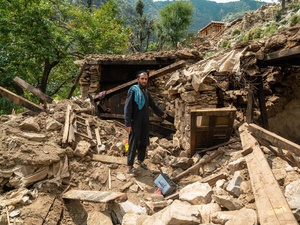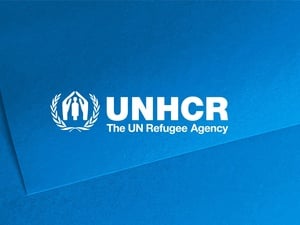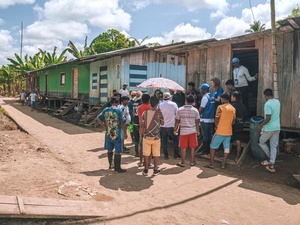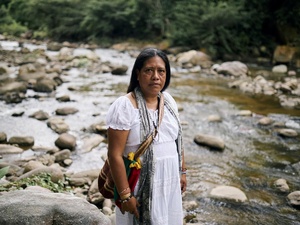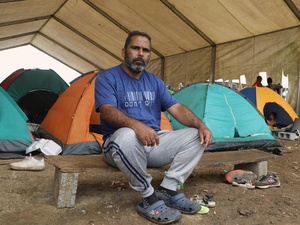Colombia: More displacement in north-west
Colombia: More displacement in north-west
A UNHCR team is returning today from a mission to the north-western Colombian town of Bellavista, where hundreds more people sought refuge over the weekend from fighting between irregular armed groups. The latest arrivals bring the total number displaced in recent weeks in the Bojaya municipality of Chocó Province to more than 2,000. Roughly 7,000 people live in the municipality, and a majority of them could be at direct risk of displacement, according to local authorities.
On Saturday, some 250 people fled the Afro-Colombian community of Pogue, where they had been caught between the irregular armed groups for the past two weeks. The displaced people were escorted to Bellavista by Colombian authorities from the Ombudsman's office, the General Procurator's Office and representatives of community associations.
UNHCR sent the team to Bellavista on Friday in response to the increasingly critical situation. We will maintain a temporary presence through regular missions to the zone, enabling close monitoring of developments and coordination with authorities in the provision of humanitarian assistance. The next UNHCR mission to the area is scheduled for this week.
Some 4,000 indigenous people belonging to the Embera and Wounaan communities along the Cuia and Bojaya rivers are also at grave risk of becoming internally displaced by severe hardship and insecurity caused by the presence of irregular armed groups on their land.
Indigenous people have told UNHCR field officers that irregular armed groups operating in the area have imposed a blockade and prevented food, medicine and other vital supplies from reaching their villages. Some 150 indigenous people who travelled to Bellavista recently to obtain supplies are unable to return to their homes because of the blockade. Others have suffered harassment and intimidation from the armed groups who fired shots in the air and threatened to kill the men and rape the women.
The more than 2,000 displaced people in Bellavista are living in crowded conditions, with some houses hosting as many as 45 people. With the exception of the newly displaced from Pogue, they have received emergency assistance but have limited access to health services and no access to education at the moment. Many have been living in the local school, which has disrupted classes for local children since mid-February. People displaced from Pogue received food from the municipality upon their arrival.
UNHCR and its partners are building four temporary shelters to ease overcrowding and allow the children to return to school. The shelters are expected to be ready by the end of this week.
Bellavista is sadly known for the May 2002 massacre, when 119 people taking refuge in a church were killed during fighting between FARC (Revolutionary Armed Forces of Colombia) guerrillas and AUC (Autodefensas Unidas de Colombia) paramilitaries. Thousands of people left the Bojaya area after the massacre. Hundreds of them have still not returned. Since then, eight large-scale displacements have taken place in the area due to clashes between various armed groups, and with the Colombian army. Some displaced communities later returned to their homes, only to be forced to flee again due to insecurity.
UNHCR calls once again on all parties to the Colombian conflict to abide by the principles of international humanitarian law, to respect the civilian population and to guarantee the safety of humanitarian workers.


